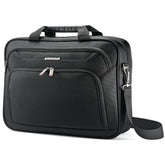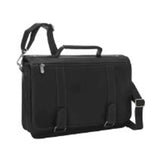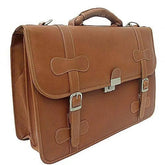Hard-Shell vs. Soft-Shell Luggage: A Complete Buyer’s Guide to Durability, Flexibility, and Performance
Hard-Shell vs. Soft-Shell Luggage: A Complete Buyer’s Guide to Durability, Flexibility, and Performance
In a rapidly evolving travel landscape—marked by stricter airline baggage policies, growing consumer expectations, and demand for high-performing gear—selecting the right luggage is more than a matter of taste. It’s a strategic decision that impacts convenience, packing efficiency, and the protection of your belongings.
Among the most common dilemmas travelers face is choosing between hard-shell and soft-shell luggage. This article offers a detailed comparison of the two, examining their differences in durability, weight and expandability, and style and functionality. Whether you're an occasional vacationer or a frequent flyer, these insights will help you make an informed and confident purchase.
1. Durability: Which Material Stands the Test of Time—and Travel?
Hard-Shell Luggage
Hard-shell luggage is commonly made from polycarbonate, ABS plastic, or aluminum. Of these, polycarbonate is the most popular for its combination of strength, light weight, and impact resistance.
Advantages:
-
Excellent protection for fragile or valuable items
-
Highly resistant to crushing and punctures
-
Water-resistant or waterproof in most cases
Disadvantages:
-
More prone to surface scratches and cosmetic damage
-
Some materials, especially ABS, are more brittle and may crack under stress
Soft-Shell Luggage
Soft-sided suitcases are typically made from high-density woven fabrics like ballistic nylon, Cordura, or polyester. These materials provide a flexible and forgiving structure.
Advantages:
-
Better resistance to scuffs and minor abrasions
-
Flexible enough to withstand some pressure without breaking
-
Easier to squeeze into tight spaces (like overhead compartments or packed trunks)
Disadvantages:
-
Offers less protection against direct impact or crushing
-
Not fully waterproof, although many are treated to be water-resistant
Durability Verdict:
Choose hard-shell luggage if you’re checking your bag, carrying electronics, or traveling in wet climates. Soft-shell luggage is well-suited for carry-on use and frequent handling, particularly when flexibility is more important than rigidity.
2. Weight and Expandability: Which Offers More Flexibility for Packing?
Weight Comparison
Historically, soft-shell luggage had the advantage in weight. However, with the emergence of lightweight polycarbonate hard-shell models, the difference has narrowed significantly. Aluminum hard-shells, while extremely durable, remain the heaviest.
Typical Weight Ranges:
-
Aluminum (hard-shell): Heaviest (10+ lbs for carry-ons)
-
ABS plastic (hard-shell): Moderate (7–9 lbs)
-
Polycarbonate (hard-shell): Lightweight (6–8 lbs)
-
Soft-shell (nylon/polyester): Lightest overall (5–7 lbs)
Expandability and Internal Flexibility
This is an area where soft-shell luggage clearly leads. Soft-sided bags usually come with built-in expandable compartments and flexible materials that allow travelers to stretch capacity as needed.
Soft-Shell Benefits:
-
Expandable zippers offer up to 25% more space
-
Flexible fabric accommodates overpacking
-
Often includes multiple external pockets for quick access to essentials
Hard-Shell Limitations:
-
Typically non-expandable (though some premium models offer expansion zippers)
-
Rigid structure prevents squeezing or stretching
-
Lacks external storage options
Weight and Flexibility Verdict:
Soft-shell luggage is ideal for travelers who need extra space or like to pack beyond the basics. Hard-shell luggage is better for organized, minimalist packing when expandability is less important.
3. Style and Functional Considerations
Hard-Shell Luggage Features:
-
Contemporary, sleek aesthetic with smooth surfaces and vibrant finishes
-
Easy to clean—just wipe with a damp cloth
-
Often includes built-in TSA-approved combination locks for added security
Soft-Shell Luggage Features:
-
Traditional and professional appearance, often preferred for business travel
-
Multiple compartments and exterior pockets for convenient organization
-
Typically equipped with expandable zippers and internal compression straps
Practical Implications:
Hard-shell luggage appeals to those seeking a modern, stylish look with added protection and easy maintenance. Soft-shell luggage offers greater practicality for travelers who prioritize accessibility, flexibility, and additional compartments.
Summary Comparison: At a Glance
| Feature | Hard-Shell Luggage | Soft-Shell Luggage |
|---|---|---|
| Durability | Superior protection for fragile items | More flexible and resilient to surface wear |
| Weight | Moderate to lightweight | Generally the lightest |
| Water Resistance | High | Moderate (water-resistant, not waterproof) |
| Expandability | Limited | High |
| External Storage | Minimal or none | Multiple accessible pockets |
| Design Appeal | Sleek, modern | Classic and professional |
| Fragile Item Safety | Excellent | Moderate |
Final Recommendations: Who Should Choose What?
Choose Hard-Shell Luggage If:
-
You often check your bags and need maximum protection
-
You pack valuable or fragile items (e.g., electronics, cameras, glassware)
-
You prioritize structure, style, and water resistance
-
You want secure, built-in locking mechanisms
Choose Soft-Shell Luggage If:
-
You frequently travel with carry-ons or under-seat bags
-
You prefer lightweight, expandable options
-
You need quick access to documents, chargers, or other essentials
-
You tend to bring back more than you left with
Closing Thoughts
The choice between hard-shell and soft-shell luggage is ultimately about lifestyle and priorities. Are you a minimalist packer who values security and structure? Or are you a practical traveler who needs room to grow and quick access on the go?
There’s no one-size-fits-all solution. In fact, many frequent travelers own both types and use them interchangeably depending on the trip.
Still uncertain? Consider your most common travel scenarios—how you pack, what you pack, and where you’re going. The right luggage is not just a container; it’s a travel partner that helps you move through the world with ease and confidence.
Would you like this formatted for publication on your website or blog? I can also create tailored versions for different audiences—such as luxury travelers, budget-conscious flyers, or business professionals.








Leave a comment
Please note, comments need to be approved before they are published.